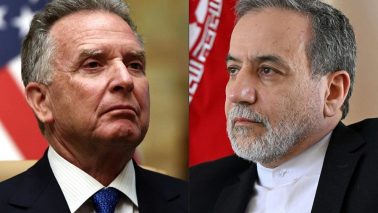On the face of it, the assassination of Hamas leader Ismael Haniyeh in Tehran on 31 July was a brilliant, opportunistic strike by one of the world’s most dedicated and fearless intelligence services.
The presumed targeting by Mossad, however, has disrupted negotiations to bring a ceasefire to Gaza and the release of more Israeli hostages, has provoked a sharp telephone call between President Biden and Benjamin Netanyahu, and has inflamed the Middle East to such a dangerous level that a full-scale war cannot be ruled out.
It’s a deja vu crisis
Much is being made of the urgent diplomatic efforts underway to try and persuade Iran, now with a new president, to hold back or limit its promised retaliation against Israel for the killing of the Hamas leader on its soil.
Ten days have passed since the assassination and so far, apart from a flurry of rockets by Hezbollah across the Lebanese border into Israel and urgent appeals by the US and Europe for their nationals in Lebanon to grab the first available flights out of the country, the feared ‘severe’ retribution has yet to materialise.

Get Britain's best politics newsletters
Register to get The Spectator's insight and opinion straight to your inbox. You can then read two free articles each week.
Already a subscriber? Log in






Comments
Join the debate for just £1 a month
Be part of the conversation with other Spectator readers by getting your first three months for £3.
UNLOCK ACCESS Just £1 a monthAlready a subscriber? Log in